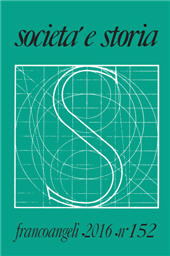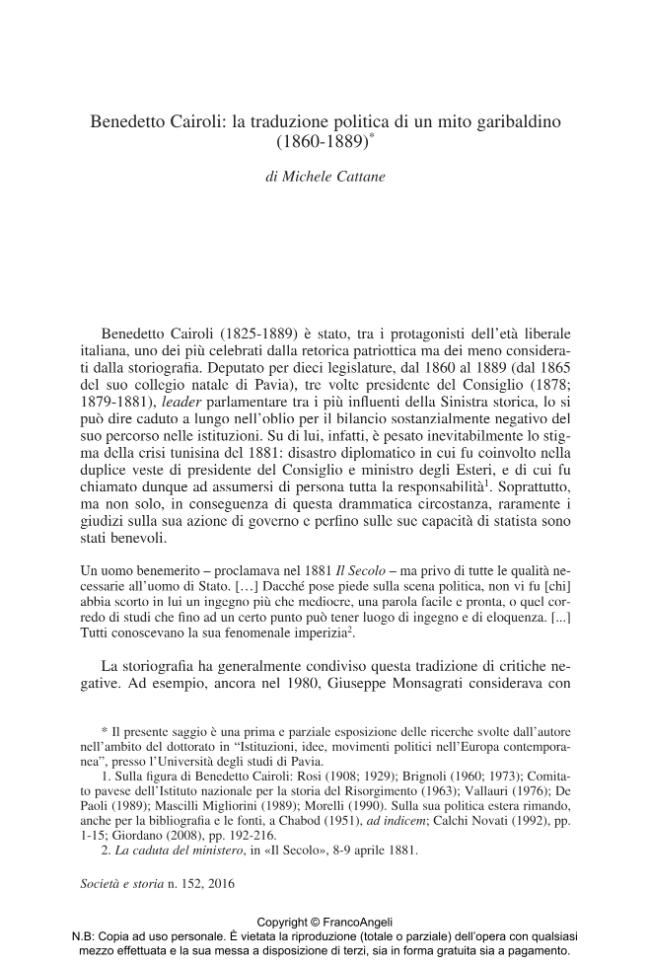Benedetto Cairoli : la traduzione politica di un mito garibaldino (1860-1889)
283-314 p.
L'articolo ripercorre la carriera politica di Benedetto Cairoli (1825-1889), ex ufficiale garibaldino che nel Parlamento postunitario assunse il ruolo di carismatico leader della Sinistra democratica, ricordato soprattutto per essere stato a capo dell'esperimento di governo «ultraliberale» del 1878. Le ragioni della sua influenza e della sua duratura popolarità, secondo l'autore, vanno cercate, più che nelle concrete prove come statista (su cui pesarono, nel 1879-1881, l'ambiguo connubio con Depretis e l'insuccesso diplomatico di Tunisi), nel suo status di celebrità politica nazionale. Nel testo, gli aspetti politico-istituzionali della vicenda di Cairoli sono intrecciati con la ricostruzione del processo di mitopoiesi che, dal 1860 in poi, ne fece un «monumento vivo» del Risorgimento: un fenomeno reso possibile dalla sua condizione di ultimo superstite di una famiglia martire per la causa italiana, ma in cui un ruolo cruciale giocò anche il fallito attentato del 1878, che lo consacrò da icona rivoluzionaria.
a eroe della monarchia.
The article retraces the political career of Benedetto Cairoli (1825-1889). A former officer in Garibaldi's troops, Cairoli assumed the role of charismatic leader of the Democratic Left in the Italian post-unification Parliament, and would be best remembered for his 1878 «ultraliberal» cabinet. According to the author, however, the reasons for his enduring influence and popularity are to be found in his status as a national political celebrity, rather than in his skills as a statesman (over which the ambiguous alliance with Depretis and the diplomatic failure of Tunis in 1879-1881 cast a shadow). In the present essay, the reconstruction of the political and institutional aspects of Cairoli's cursus honorum are intertwined with the myth-making process, through which he became a «living monument» of the Risorgimento, from 1860 onwards. Such phenomenon was primarily possible because Cairoli was the last survivor of a family martyred for the Italian cause, although the 1878 failed attack on his life played a cruc
ial role as well, transforming him, from a revolutionary icon, into a hero of the monarchy.
Is part of
Società e storia : 152, 2, 2016-
Articles from the same issue (available individually)
-
Information
ISSN: 1972-5515
KEYWORDS
- Cairoli, mitopoiesi, celebrità politica, garibaldinismo, Sinistra storica, democrazia
- Cairoli, myth-making, political celebrity, Garibaldinism, Historical Left, democracy



